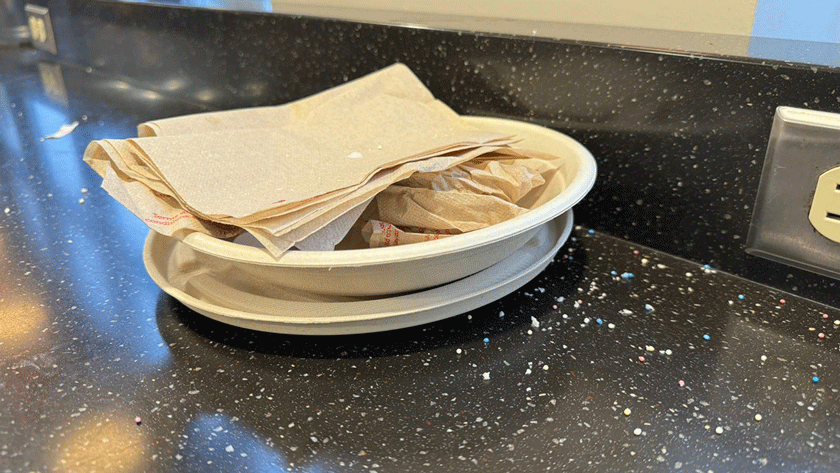A Capital Current analysis of the database Ottawa Public Health uses to track food inspections shows critical ratings and infractions have increased 30.5 per cent across the city since the 2021-2022 inspection period.
In the first 10 months of 2023, for example, Tim Hortons locations received 30 inspections deemed “critical,” a four-fold increase compared to 2021.
The city’s inspection data indicates Tim Hortons outlets have had the greatest number of restaurant infractions compared to other chain outlets such as Subway, McDonalds and Pizza Pizza.
Tim Hortons head office did not respond to questions by Capital Current about the critical inspections in several franchises by press time.
Typically, inspections are conducted following complaints from the public with food inspectors following up with restaurants based on the severity of infraction.
Infractions can include, for example, improper cooking and storing of poultry, fish and meat, improper prevention of pests in the establishment and foods contaminated by raw items.
The city also uses a rating system to flag the severity of inspections on its website.
For example, local restaurant chain, Clocktower Brew Pub, received a yellow rating for its location on Bank Street in Centretown. The yellow rating means the infraction was judged to be “non-critical,” but still in need of addressing.
The report filed on Nov. 3, concluded the location was not in compliance with the prevention of “entry for pests,” as well as sanitizing and cleaning of surfaces and equipment for which action was taken by the inspector.
When approached in person about its inspection status, management at the Clocktower location refused to comment.
Dominique Bremner, the manager of Public Health Inspections, told Capital Current that Ottawa Public Health (OPH) has increased its inspection capacity in the past year to try to ensure restaurants comply with pre-pandemic standards, which may explain the rise in the number of failed inspections.
Another factor that might influence the number of failed inspections is the labour shortage that has plagued the food service industry.
Since 2022, there has been a steady decrease in the number of workers in the hospitality and food services sector in Ontario and Quebec, Statistics Canada reports.
For example, Ontario saw 946 people leave the sector between 2022 and 2023, the report shows.
Eva Lorenzos worked in the restaurant and service industry for nearly 30 years.
“I just assumed that I would be a server for my whole career,” Lorenzos said, “I loved my job, and I made good money so, why not?”
Lorenzos left the service industry in 2022 and turned to real estate, earning her licence as an agent earlier this year.
When asked why she made the career change, Lorenzos spoke of the uncertainty in the field which she says never fully recovered from the pandemic.
“It was just impossible to find and keep good staff,” Lorenzos said, “we were always scrambling to find people and training every few weeks it seemed.”
“I was burned out and wanted a change, something that would be more stable,” Lorenzos added.
While Lorenzos doesn’t cite a drop in cleanliness as her main reason for leaving the restaurant sector, she does note that it was difficult to keep on top of food safety with minimal staff.
“We definitely had staff that were not as committed to keeping the place clean as others. Some of them were only there for a week or two so why would they care?” Lorenzos concluded.
Bremner said in a statement that OPH’s Food Safety program strives to promote routine food inspections, investigate complaints and offer food handler education.
Bremner says OPH has been trying to increase the inspection capacity to ensure people like Lorenzo feel supported in their workplace and the general public feels safe eating at restaurants.
Although the increase in general failed inspections has gone up over the first 10 months of 2023 compared to 2022, the post-pandemic trend of fewer restaurants closing because of failed inspections in the city is estimated to continue.
Food inspections, in general, in 2023 are on track to surpass the number of inspections in 2022, according an analysis of the city's data. The results do not necessarily mean there has been an overall decrease in cleanliness, Ottawa Public Health says.

Shelby Levine is active in the Ottawa restaurant scene through her food review account on Instagram which has garnered over 32,000 followers.
“I’m glad the city is taking (inspections) seriously,” Levine said.
Levine has visited hundreds of restaurants around Ottawa and has had few bad experiences to report.
“Overall, I feel very safe eating in Ottawa, and have only had a few random sketchy experiences,” Levine concluded.




